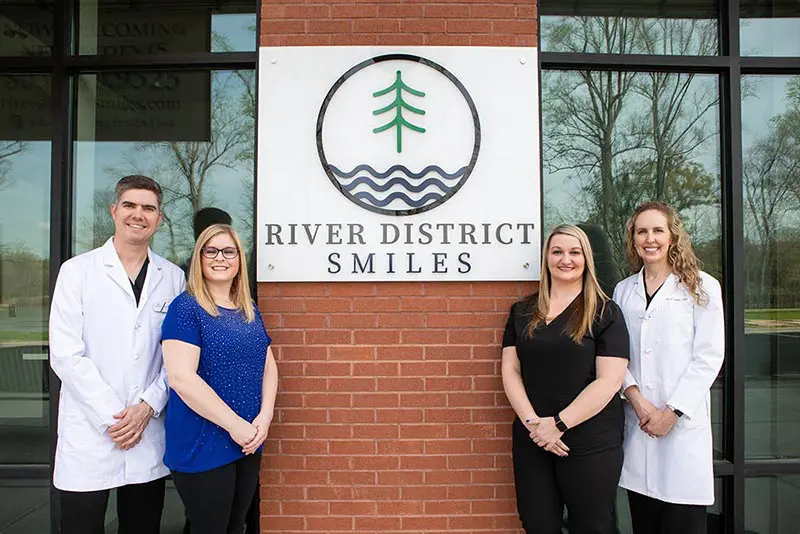Wisdom teeth typically erupt between 17 and 25, but some lucky individuals never have them. However, your dentist may suggest removal if they are impacted, misaligned, too close together, or decaying. In addition, removal can help keep your mouth healthy and prevent pain in the future with the assistance of an emergency dentist in Rock Hill, SC.
There’s no need to worry if your dentist has recommended that you or your adolescent have their wisdom teeth extracted. Although it qualifies as a surgery, oral surgeons conduct the operation in offices across America daily with great success and safety even by emergency dentists.
While wisdom teeth removal isn’t necessarily a priority, your third molars can be likened to the appendix – you don’t need them for survival. Yet, they may cause more harm than good if too close to other surrounding teeth. To prevent such issues from arising and leading to further complications, consider removing your non-bothersome wisdom teeth before any potential crisis occurs!
Wisdom teeth can be problematic and lead to complications depending on how they grow in your mouth. If you’re mulling over whether or not to remove your wisdom teeth, here’s what you need to know before making a final call.
WHY IS WISDOM TEETH REMOVAL NECESSARY SOMETIMES?
Wisdom teeth removal is sometimes necessary because the mouth may be too small to accommodate the extra molars. If the wisdom teeth remain, they can push against other teeth and create overcrowding and crookedness. This can lead to serious dental problems, including gum disease, infection, cavities, or tooth decay.
In addition, wisdom teeth that remain in place often become impacted, which causes pain and swelling. Finally, if left untreated for too long, cysts and tumors can form around the impacted third molar leading to even more complications. Therefore, wisdom teeth should be removed as soon as possible before any further damage occurs.
An oral surgeon typically recommends an extraction procedure for those who need their wisdom teeth removed. This procedure can involve either a partial or full extraction and will be carried out under local anesthetic.
During the process, the oral surgeon will make an incision in the gum tissue to expose the tooth root and gently remove it. In some cases, bone grafting may also be necessary if there is insufficient space for the tooth to come into position properly. Following the removal of your wisdom teeth, you should follow all instructions given by your surgeon and any medication prescribed to ensure a speedy recovery.
Although having your wisdom teeth removed can seem daunting, it is often necessary for dental health purposes. Proper treatment and aftercare post-extraction can help reduce any potential issues that might occur.
WHAT ARE SOME OF THE COMMON RISKS INVOLVED IN WISDOM TEETH REMOVAL?
As with any form of surgery, there are certain risks associated with wisdom teeth removal. Some of the most common risks include infection, bleeding, and nerve damage.
In rare cases, jaw fracture or sinus opening can occur. It is also possible that the procedure may cause a dry socket – a painful condition caused by exposed bone when the blood clot fails to form in the extracted tooth socket.
All these risks should be discussed with your oral surgeon before the procedure. Additionally, it is essential to follow all instructions your healthcare provider provides for optimum recovery.
HOW DOES WISDOM TEETH REMOVAL WORK?
Wisdom teeth removal is a safe and relatively straightforward procedure. It typically takes less than an hour to remove all four wisdom teeth, and the patient will be given a local anesthetic.
The oral surgeon will make an incision into the gum tissue during the procedure to expose the tooth root. The dentist may then use instrumentation to loosen and extract the tooth before closing up any wounds with sutures or stitches. After extraction, your oral surgeon may also perform bone grafting if needed to ensure proper healing.
Wisdom teeth removal can help preserve your overall dental health by preventing overcrowding and other potential problems that can arise from impacted or problematic third molars.
If you are considering having your wisdom teeth removed, speak with an experienced dentist like us here at River District Smiles Dentistry.
HOW DO PEOPLE PREPARE FOR WISDOM TEETH REMOVAL?
Before undergoing wisdom teeth removal, it is essential to speak with your dental care provider so that they can adequately evaluate your oral health and determine if the procedure is necessary.
Depending on the situation, you may be asked to have x-rays taken of your mouth. Additionally, suppose you are taking any medications (i.e., blood thinners). In that case, it is crucial to inform your dentist, as these can increase the risk of excessive bleeding during or after the extraction process.
On the day of your surgery, ensure you arrive at least 15 minutes early and do not eat or drink anything for 8 hours before the procedure to reduce any potential complications from anesthetic. Lastly, arranging for someone to drive you home afterward is also a good idea, as your coordination and reflexes may be impaired.
WHAT IS IT LIKE TO HAVE WISDOM TEETH REMOVED?
The experience of having your wisdom teeth removed can vary from patient to patient. However, most people feel a slight pressure in the area during the procedure and some discomfort afterward. You may be given antibiotics to prevent infection or pain medication for any distress that arises post-surgery. Most people can generally return to their daily activities within 1 – 2 days after having their wisdom teeth extracted.
WHAT IS WISDOM TEETH REMOVAL RECOVERY LIKE?
The recovery time for wisdom teeth removal can vary based on the complexity of your procedure and the number of teeth extracted. In general, it is essential to follow all instructions your oral surgeon gives during this time to ensure a smooth healing process. For example, you should avoid eating hard or crunchy foods, drinking through straws, smoking, and exercising vigorously. Also, brush gently around the extraction area with an anti-bacterial rinse. It is also essential to keep up with follow-up appointments to monitor your progress.
Ultimately, removing your wisdom teeth can seem intimidating at first, but proper treatment and aftercare will help ensure that you heal quickly and without complications.
You can help ensure a successful outcome with minimal risks or complications by taking the necessary steps to prepare for wisdom teeth removal. For more information about the process or if you would like to schedule an appointment, please do not hesitate to contact us here at River District Smiles Dentistry.
Our experienced team of professionals is here to answer any questions and will be happy to assist you every step of the way.


